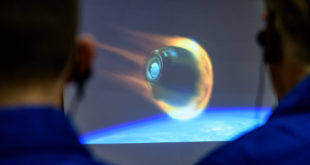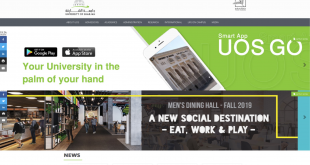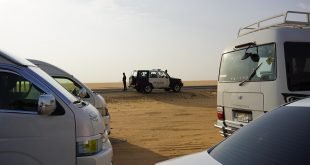Issue 28, summer/fall 2019 https://doi.org/10.70090/EAR28CAD Abstract In light of the advancing digital environment and the interest in boosting scientific content published on digital platforms, this paper seeks to define and critically analyze the discourse of popular science shows (henceforth, “PSS”). Considering the fact that religion serves as a major foundational …
Read More »Transformations and Trends in Science Journalism as Viewed by the Egyptian Media and Scientific Community
Issue 28, summer/fall 2019 https://doi.org/10.70090/MME28TSJ Scroll down for the Arabic abstract. The study aims to identify the common perceptions and evaluation of the journalistic and scientific community in Egypt, of current transformations and trends in scientific journalism. The study does so, in order to determine the following: 1) The position …
Read More »More than Meets the Eye: A Multimodal Approach to Science-Popularizing Discourse and Representation of the ‘Other’ in a Selection of National Geographic Feature Articles
Issue 28, summer/fall 2019 https://doi.org/10.70090/NE28MMAS Abstract National Geographic Magazine (NGM) is an American cultural icon renowned for the dissemination of geographic knowledge, the exhilaration of cultural explorations, the popularization of science discourse, and the cultivation of visual imaginaries. Among popular science magazines, its distinctive force in the popular imagination squarely …
Read More »Applying the Four Models of Science Journalism to the Publics’ Interaction with Coronavirus News
Issue 28, summer/fall 2019 https://doi.org/10.70090/LK28FMSJ Abstract Since the outbreak of coronavirus, also known as COVID-19, the news has been covering its rapid developments by the minute, while feeding the eager publics the information they seek regarding its origin, health-threats, symptoms, preventative measures, and global impact. It is thus of pressing …
Read More »The Earth Turns and the World has Changed: Egyptian and Arab Science Journalism in the Digital Age
Issue 28, summer/fall 2019 https://doi.org/10.70090/MYG28SJD Abstract Science journalism in Egypt reflects the way science is taught, perceived and practiced in the country. Online publications cover science and technology in different ways. Yet, all of them rely on translators as most of the science stories are sourced from foreign outlets. This …
Read More »Film Review | Watching “Us” in the Middle East
Issue 27, winter/spring 2019 https://doi.org/10.70090/MM27WUME “Us,” Jordan Peele’s newly released horror film, raises questions about American identity that will appear very different to viewers outside the United States. Peele has claimed that “Us” aims to hold up a mirror to American society, showing “us” how “we are our worst enemies.” …
Read More »Marathon TV Watching among Emiratis in the Interactive Media Environment
Issue 27, winter/spring 2019 https://doi.org/10.70090/AAAM27TV Abstract The study investigates the habits of binge TV watching—also called marathon TV watching—among a sample of Emiratis. It refers to watching consecutive episodes of a series in one setting for several hours. The research examines the expected outcomes for binge-watching and the possibilities of …
Read More »Cultural Identity Expressed Through Electronic Platforms of Higher Education Institutions: A Comparative Study (Arabic)
Issue 27, winter/spring 2019 https://doi.org/10.70090/EK27CIEP Scroll down for the Arabic abstract. There is substantial cultural diversity in many societies these days. Consequently, the need for cross-cultural institutions to build and present their ethical values and cultural identity within different systems and societies has grown. Most higher education institutions face the …
Read More »Religious Identity and Egyptian Electronic Newspaper Reporting on the War on Terror (Arabic)
Issue 27, winter/spring 2019 https://doi.org/10.70090/MGO27RIE Scroll down for the Arabic abstract. The study aims to identify the characteristics of religious identity discourse in Egyptian online newspapers (e-newspapers) in the context of the “War on Terror”. Factors and variables contributing to a crisis of religious identity, in addition to recommendations to …
Read More »Participation and National Identity Building through Arab State Electronic Portals: A Comparative Study (Arabic)
Issue 27, winter/spring 2019 https://doi.org/10.70090/AFR27PNI Scroll down for the Arabic abstract. This study explores the role of Arab government portals in expressing the state’s construction of national identity and enhancing the platforms and tools of e-participation; including e-information, e-consultation, and e-decision making. The study analyzes 22 portals to explore the …
Read More » Arab Media & Society The Arab Media Hub
Arab Media & Society The Arab Media Hub










